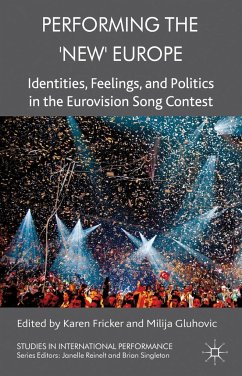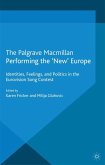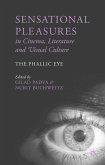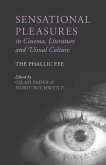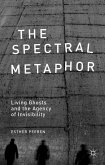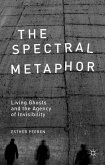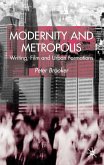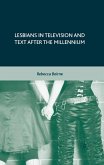This fascinating and lively volume makes the case that the Eurovision Song Contest is an arena for European identification in which both national solidarity and participation in a European identity are confirmed, and a site where cultural struggles over the meanings, frontiers and limits of Europe are enacted.
Richly contextualized via a masterful introduction, this book's story of the Eurovision Song Contest sings with the verve of topicality. The 'new' Europe is revealed in fascinating guises through clear-eyed accounts of what has been invested in its performance in particular places and among specific audiences. In the macronarratives shaping this global contest as much as the micromoments of its annual unfolding, national and supranational politics, we learn, are no less intriguing than that chameleon-like entity we still call Europe. A provocative and timely collection.
- Helen Gilbert, Professor of Theatre, Royal Holloway, University of London
A book full of insight, facts, opinions and great stories about the world's most successful TV format ever.
- Svante Stockselius, Executive Supervisor of the Eurovision Song Contest, 2003-2010.
This impressive collection takes Eurovision studies to the next level, and it is especially timely now that the new post-Wall unified Europe faces some of its greatest economic and political challenges. The newly-expanded Song Contest is far more than just an entertaining or embarrassing TV show it's actually still a 'a battlefield,' in the memorable words of one of the book's contributors, a way of channeling the tensions and rivalries that still lurk beneath and now often break through the surface of this ideal imagined Europe.
How do Britain and Russia see and sing themselves from their post-superpower positions, how do Serbia and Israel and Azerbaijan perform their inclusion in the European project, how do ethnic minorities like Roma play a role within national and cultural identities, and how do feminists and queers find themselves represented in a show that attracts many women and gays? The eleven contributors shine a light on all these questions and more in their incisive and often provocative analyses, while the lively panel discussion brings in broadcasters' voices. All this makes for exciting new views on the 'new' Europe and its changing 'Euro-visions' that bridge music, culture, politics, and economics every spring.
- Ivan Raykoff, Associate Professor, The New School; co-editor of A Song For Europe: Popular Music and Politics in the Eurovision Song Contest (2007).
- Helen Gilbert, Professor of Theatre, Royal Holloway, University of London
A book full of insight, facts, opinions and great stories about the world's most successful TV format ever.
- Svante Stockselius, Executive Supervisor of the Eurovision Song Contest, 2003-2010.
This impressive collection takes Eurovision studies to the next level, and it is especially timely now that the new post-Wall unified Europe faces some of its greatest economic and political challenges. The newly-expanded Song Contest is far more than just an entertaining or embarrassing TV show it's actually still a 'a battlefield,' in the memorable words of one of the book's contributors, a way of channeling the tensions and rivalries that still lurk beneath and now often break through the surface of this ideal imagined Europe.
How do Britain and Russia see and sing themselves from their post-superpower positions, how do Serbia and Israel and Azerbaijan perform their inclusion in the European project, how do ethnic minorities like Roma play a role within national and cultural identities, and how do feminists and queers find themselves represented in a show that attracts many women and gays? The eleven contributors shine a light on all these questions and more in their incisive and often provocative analyses, while the lively panel discussion brings in broadcasters' voices. All this makes for exciting new views on the 'new' Europe and its changing 'Euro-visions' that bridge music, culture, politics, and economics every spring.
- Ivan Raykoff, Associate Professor, The New School; co-editor of A Song For Europe: Popular Music and Politics in the Eurovision Song Contest (2007).

